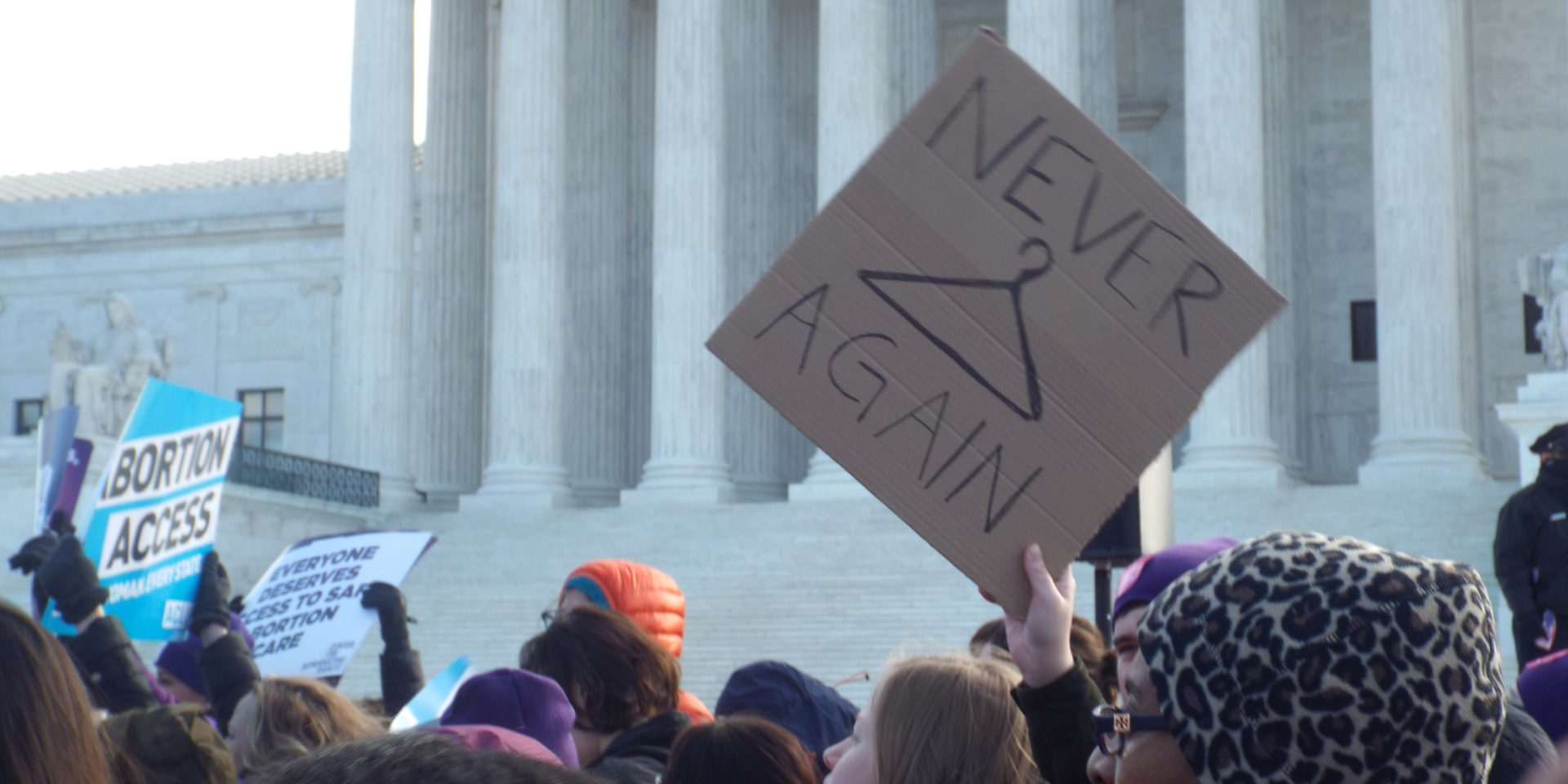This week marks the 44th anniversary of Roe v. Wade, a historic Supreme Court case that ruled a woman’s right to privacy includes her right to have a safe and legal abortion. Now, state and federal policymakers are passing laws that severely limit a woman’s ability to access that constitutional right. This past year alone, several states passed laws — like abortion provider registration and fees, defunding abortion providers and 20-week abortion bans — that make it harder for their female residents to access abortions.
If President Donald Trump keeps his promises, it could become even more challenging. He has vowed to appoint Supreme Court justices who will overturn Roe v. Wade, and with the vacancy left by the death of Justice Antonin Scalia, and three justices who are 78 or older, it’s highly likely he will appoint more than one justice during his presidency. This can make the nightmare of overturning Roe v. Wade being a harsh reality.
Overturning Roe v. Wade would have disastrous consequences for Black women. Black women have the highest unintended pregnancy rate in the U.S. — double the rate of White women — primarily because of limited access to consistent contraceptives. As a result, Black women also have a higher abortion rate than White women. Overturning Roe v. Wade would force Black women to seek dangerous methods to terminate a pregnancy or have more children than they can afford to support. Not allowing Black women to have control over their medical decisions or family size can cripple Black women financially and emotionally. This has a larger impact on society because the estimated cost of unintended pregnancy in the United States is over $21 billion from state and federal funds.
Judges are on the front lines of the fight to protect abortion access for all women. A federal judge blocked an Arkansas law that prohibits abortion providers from receiving Medicaid funds. In October, the Oklahoma Supreme Court struck down a state abortion law that placed extreme requirements on abortion providers, like taking samples of fetal tissue from patients younger than 14. And let’s not forget, this past summer the Supreme Court struck down Texas abortion laws that required abortion providers to have admitting privileges at nearby hospitals and abortion clinics to meet the standards of outpatient surgical centers — strict requirements that aren’t even required for procedures like cosmetic surgery.
That’s why now, more than ever, we need more Black women appointed to local, state, federal and Supreme Court judgeships. Black women have experienced a history of no control over decisions involving their reproductive health care, such as forced sterilizations and contraceptive use. We understand that at their very core, bans on abortions are just another tool to take away our autonomy over our bodies, our families, our finances and our communities. While judges are required to be unbiased, Black women are uniquely positioned to understand the nexus between sexism, racism.
In November, nine Black women were elected as judges in Jefferson County, Alabama. These women can help pave the way for the next generation of Black women who could become champions for women’s reproductive autonomy. Moving forward during this new presidency, I urge you to pay attention to your state legislatures because abortion restrictions or bans in one state will often show up in another state or even at the federal level. Demand more Black women are appointed as judges and use your vote to elect Black women as judges so we can improve and protect our access to safe, affordable abortions, and other forms of reproductive health care. Black women’s lives depend on it.


